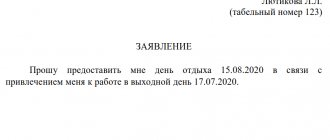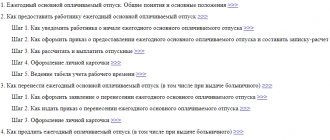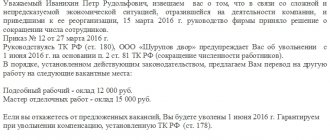After all, the Russian language is an almost endless number of “traps,” including for those who know the rules well. Because even seemingly familiar words are written differently in different cases, depending on the context. And this is another “trap”, since some prepositions are always written the same way. But at the same time, the writer feels a catch: maybe, after all, context matters? In this regard, we write the following text. Here, by the way, is one of the “traps”: how to spell it correctly: due or due? Together or separately? Let's figure it out.
Spelling a word in connection
This combination as a part of speech can be:
- The preposition “in” and the noun “connection”.
- A completely denominal derivative preposition.
In the first case , it is immediately clear that we write in connection with a space. That’s why we know the spelling of prepositions with nouns: they are always written separately. There is no difficulty in this. You can understand that this is a preposition and a noun by the meaning of the sentence. For example:
- Be in a dangerous relationship with hooligans.
- Has not been seen in connection with anyone suspicious.
As you can see, after the preposition you can insert an adjective, which would not be possible if the connection were written together. In addition, if we specifically mean the noun “connection,” then in this case the stress falls on the vowel I.
Second case : when in connection - this is a denominate derivative preposition. You need to replace it with a synonym “because of” or “for the reason”. If the meaning does not change, it means in connection – this is the entire preposition:
- In connection with repairs - due to repairs, due to repairs.
- Due to poor health - due to poor health, due to poor health.
As you can see, there is no difference.
And this is the trap, because the hand is tempted to write it together - by analogy with other similar prepositions such as “in view of”, “blindly”, “as a result of”.
However, you need to remember that this particular preposition is always written separately, regardless of its role in the sentence. And so that you don’t have internal resistance on this matter, you can remember that sometimes the preposition “in connection with something” is written differently: “in this connection...” And although such writing smacks of “bureaucratic”, nevertheless, it has place to be.
And since we can insert an adjective, then, accordingly, we need to write it separately.
In this case, the stress falls on the vowel I. Thus, if we do not write, but speak out loud, we can distinguish between these parts of speech.
As for punctuation, neither in the first nor in the second case are commas placed before or after the preposition: it does not need to be isolated.
Example sentences
- Alexey did not see anything reprehensible in connection with Olga, because there were no consequences.
- Due to failure to comply with the orders of the bailiffs, Igor was ordered to travel abroad.
- Due to the move, the entire hallway was littered with bales, boxes and bundles.
- The boss told me to convey that he was very sorry, but due to urgent production needs, he was forced to recall Oleg from vacation.
- Although Pyotr Ivanovich was caught having an affair with a young lady on the side, this did not interfere with his good health.
- Due to another violation of building codes, the delivery of the house was postponed indefinitely.
- In connection with the above, you will lose all additional vacation payments and quarterly bonuses.
Phraseologism
in connection with is interesting (and difficult to understand) . This stable expression from the same noun with two prepositions in itself has the meaning of... a preposition of the instrumental case! Such morphological (in spelling) redundancy relative to semantic (in meaning) is very rare.
In relation to our case, it is important that prepositions, firstly, are unchangeable words. Secondly, they are transferred from line to line only as a whole. Therefore, in connection with, it is correctly written separately, and there are no options for transferring it.
Restrictions for the employer
Let us note that the concept of production necessity in the Labor Code is by no means a panacea. Current legislation limits the rights of the employing company even in situations of production necessity. Four key points can be highlighted.
It is prohibited to transfer an employee to a position that is contraindicated for him due to health reasons. For example, due to an emergency situation, the company decided to transfer a janitor to a warehouse, where he will have to move large items. Before implementing this measure, management should ask whether the employee has a certificate indicating that he is prohibited from lifting heavy objects. Ignoring this measure will lead to the imposition of fines during inspections by regulatory authorities.
The maximum period for transferring a specialist to another position is one calendar month. After the specified period has expired, the employee must be returned to performing “usual” functions (Article 72.2 of the Labor Code of the Russian Federation).
Qualification
Transfer of a specialist to a position requiring a lower qualification is permitted only with his written consent (Article 72.2 of the Labor Code of the Russian Federation). For example, an economist can be involved in performing the functions of a laborer or loader only in a situation where he himself does not object to such a measure.
Moving location
An employee can only be transferred within the company. This means that it can be moved within the parent organization or between branches that are not separate legal entities. It is impossible to force an employee to take an unfilled position in another LLC.
We suggest you read: How to use loan insurance
Meaning
“In connection with” is a case preposition that is morphologically and semantically causative. As such, it indicates cause-and-effect relationships and/or relationships (what follows from what, what happens from what). Used mainly in formalized (official, “official”) speech:
- “ Due to the epidemiological danger, a two-week quarantine is announced at the school.”
- “ In connection with the above, I ask you to defer the payment of the next installment to repay the mortgage debt.”
- “I ask you to grant me extraordinary leave due to family circumstances.”
The use of “in connection with” in literary speech makes it dry, emotionally weakly expressive, and little touching. True, L. N. Tolstoy in “War and Peace” has an example of the opposite property: “A whole new series of thoughts, hopeless, but sadly pleasant in connection with this oak tree, arose in the soul of Prince Andrei.” But you have to be Leo Tolstoy to speak the language like that. By analogy, one can recall the words of Mark Gallay: “A real test pilot must fly freely on everything that, in principle, is capable of flying, and with some difficulty on what, in principle, cannot fly.”
Comma with the word "in connection with"
A phrase with this derivative preposition can be isolated optionally if certain conditions are present in the text:
- if it is between the subject and the predicate;
- turnover is common;
- the phrase is neither at the beginning nor at the end of the sentence;
- it contains an explanation of what is being said, and it stands out intonation;
- The author's placement of punctuation marks is possible, depending on his intention.
Rules with noun and preposition “in connection”
If the phrase “in connection” is a singular noun in the prepositional or genitive case and a preposition, then this phrase should be pronounced with an emphasis on the sound “I”. In sentences, such a phrase is most often an addition and may have an agreed definition.
Examples
Say all the examples out loud for better memorization.
- There was nothing reprehensible in the connection between Ivanov and Petrova - they were good friends and former colleagues.
- The connections of the collegiate assessor Philip Apollonovich did not include random people, such as the freckled Agrippina Savelyevna, even though she played the cello and treated her poor relatives to various dishes.
- Julia was noticed in an affair that spread like a black stain over her once impeccable snow-white reputation.
Punctuation checking services
When you have to create dozens of articles every day, your mind gets tired and your alertness decreases.
Because of this, you miss typos, form some sentences incorrectly, and, of course, miss commas or add extra ones.
Previously, there was no service on the Internet that could be used to check commas online. But for some time now such people have appeared. They indicate where to put a comma and where in the sentence it is better to remove it.
articles: The best ways to check text for punctuation errors Checking commas in text online in "Spelling" Checking punctuation in "Conorama" Identifying extra and missing commas in "Orfo online" Commas in the Russian language. When are they not necessary? When is a comma used? What to do if readers indicate where to put commas?
The best ways to check text for punctuation errors
After writing an article, you should postpone checking it until the next morning. After getting out of bed and having a cup of coffee, you need to proofread the text, identifying unnecessary punctuation marks and adding missing ones. If in doubt, you should use the capabilities of the Conorama service.
After this, you should contact the Orpho online service. It is free and can identify punctuation errors missed by the author of the article. Unfortunately, this service does not show the rules of the Russian language, on the basis of which it is necessary to add punctuation marks.luckyads
If you have doubts about the usefulness of such a check, you must use the paid service “Spelling”. It allows you to check any text for punctuation errors. In rare cases, it does not detect unnecessary or missing punctuation marks. But it always shows the spelling rules.
Checking commas in text online in Spelling
“Spelling” is the name of the service that checks commas online.
By registering for free in this system, you receive an email with a password and a link to your account.
After logging in to the latter, it is better to immediately indicate the necessary information so that the reminder window does not irritate you when you need to check whether commas are placed correctly in a sentence or in the entire text.
After entering personal information in your account in the service, you should click on the “Account” link. After this action, a page will appear where you need to embed your text.
After clicking on the “Check” button located at the top left, the comma placement check will begin online.
In addition to the fact that the service will point out missing and extra punctuation marks, it will also check the text for spelling and stylistic errors, and will also find any typos.
It is worth noting that “Spelling” is a paid service. But only there is a full online check of the correct placement of commas carried out.
All other services available on the Russian-language Internet are guaranteed to identify missing and extra punctuation marks, however, in reality these scripts do not cope with this task. Among them: - text.
ru;— languagetool.org;— textis.ru;— online.orfo.ru;— “Yandex Speller”
- advego.ru.
Currently, the Orfogramka service still has tariffs tied to the number of checks. But from March 21, 2018, money will be charged for every 1,000 characters with spaces. This does not at all inspire rewriters, copywriters, proofreaders and editors who strive to publish complete texts on the Internet that do not contain errors or typos.
However, only if you use this service to check for punctuation and other errors will you develop the habit of writing competent texts. He is a kind of simulator. After all, with its frequent use, the rules of the Russian language are easily remembered, to which the script of the “Spelling” service draws attention.
Checking punctuation in Conorama
There is a script in RuNet that searches the site, which contains the rules of the Russian language, explaining the spelling of various words and phrases. This service also allows you to check commas online.
The creators called it “Conorama”. There is no need to register on the site.
You need to enter a phrase into the window that is visible on the page, and after pressing the Enter button, you can get the result - the rule of the Russian language, according to which commas are inserted or omitted.
Identifying extra and missing commas in Ortho online
Checking punctuation online is also possible in the Orfo online service. There, as in “Spelling”, you need to enter text in the window and click on the “Check” button. Missing or extra commas will be highlighted in blue.
When you click on the highlighted word, a recommendation for correcting the defect will appear. “Ortho online” is a service where you can check comma placement online for free.
This makes it attractive to most copywriters.
Commas in Russian. When are they not necessary?
For many people familiar with the rules of the Russian language, punctuation remains quite difficult. Online comma checking is possible in the services listed earlier in this article.
And this part of it lists the rules according to which commas should not be inserted in a sentence.
For example, when using the following words and phrases: - in addition; - ultimately; - in the end; - ultimately; - as a last resort; - at best; - in any case; - at the same time;
- as if.
Punctuation in Russian is a complex topic. Its rules are not always logical. Therefore, in some cases, where you would like to put a comma, you should omit it. For example, at the beginning of a sentence, after phrases: 1. “In order to...”2. "Since…".
3. “Despite the fact that...”
4. “As…”.5. “Before...”6. “Instead of...”7. “Especially since...”8. “Nevertheless...”9. “In case...”10. “After...”11. “And...”12. "Before as…".
13. “While...”
If you cannot automatically insert commas in sentences containing such phrases, then checking commas online in the services indicated earlier in this article will come to the rescue.
Microsoft Word can also help you find extra commas. At the very top of the document is the word “Service”. If you click on it, a drop-down menu will appear in which you need to click on the “Spelling” item.
But to check a specific part of the test, you must first select it.
There are set comparative expressions in which comma separations are not allowed. This is also indicated by checking commas online in the “Spelling” service: - pale as death;
- trembles like an aspen leaf.
Heterogeneous expressions are also not separated by commas: - neither light nor dawn; - neither this nor that;
- neither give nor take.
This part of the publication does not list all the examples and rules that help to correctly place commas in a sentence. One article is not enough to cover such a voluminous topic. And even if you learn all the rules, punctuation errors are still made due to fatigue. Therefore, online comma checking is recommended.
When is a comma used?
There is usually no comma after an adjunct. Microsoft Word sometimes checks commas incorrectly and therefore does not underline incorrect punctuation marks.
But according to the rules of the Russian language, if the introductory part of a sentence is highlighted intonationally, then it should be marked with commas.
Examples of such phrases: - unfortunately; - fortunately; - to shame; - to surprise; - to joy; - the hour is uneven;
- strange affair.
If the author of the text expresses an assessment of the reality of what he is trying to communicate, then the phrases used are highlighted with punctuation marks.
But when an online check of commas is carried out, the script does not always indicate the need to highlight a word or phrase of this type with punctuation marks: - certainly; - I think; - it seems; - it would seem; - beyond any doubt; - it must be assumed; - obviously;
- I suppose.
In the case when the author of the story indicates the source of information, the corresponding words should be highlighted with commas: - they say; - they say; - in your opinion; - according to rumors;
- according to information.
In sentences, after words and combinations indicating a connection of thoughts, it is necessary to put commas: - firstly; - means; - in general; - so; - for example;
- on the other side.
In each case, a comma is placed between the parts of a complex sentence if none of them contains a minor member of the sentence that relates to both the first and second components. Moreover, even when they are separated by the conjunction “and”. For example: “The man plopped into the car, and within a minute the engine roared.”
This part of the article also does not contain all the rules and does not provide all the examples that help copywriters correctly place commas in the text. Fortunately, most of the punctuation defects are corrected by a convenient online comma check.
Writing examples
Let's look at a few examples:
Due to the need to get up early and not be late for school, Vanya was given an alarm clock. (Because of the need to get up early; because of the need to get up early.)
We took an umbrella because the forecast predicted rain. (Due to forecast rain.)
The preposition “in” is a standard preposition and should always be written separately:
due to necessity, in the form of a circle, in continuation of what was described, during the day, at the conclusion of the concert.
A few more examples:
This unusual person could not enter into Konstantin Petrovich’s connection.
She was seen in an affair that discredited her reputation. (Seen in a defamatory connection.)
According to the rules, the preposition “in” is always written separately. Together or separately? Of course, separately.
Questions from our readers
Calling from vacation: nuances and features
The company's management has the right to call an employee back from vacation, but on the condition that the subordinate is indispensable at his workplace or one of the cases described earlier has arisen. It should be emphasized that, according to the law, the recall of a subordinate from annual vacation can only be done by agreement of the parties. The employer will not be able to take such a step solely at his own personal request, and all demands made are considered illegal, including threats and pressure.
If such an agreement is reached, the employee retains the right to unused rest time, and he can choose a time convenient for himself independently.







